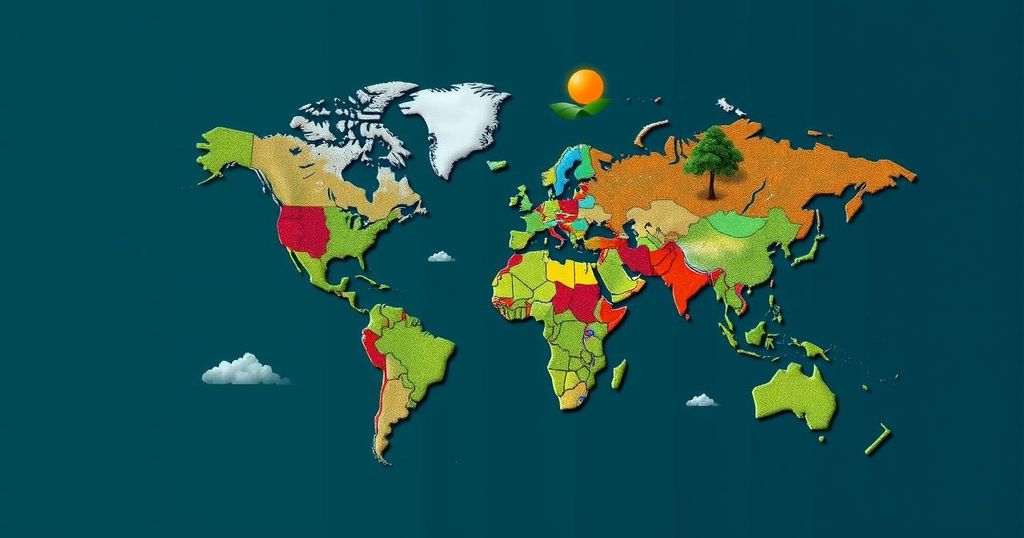Urgent Climate Commitments Needed as COP29 Negotiations Stall

At COP29 in Azerbaijan, pressure mounts on wealthy nations to commit nearly $1 trillion annually for developing countries’ climate support. With only two days remaining in negotiations, little progress has been made, raising concerns about funding commitments. Developing nations urgently call for increased financial support to combat climate change’s impacts as discussions stall.
As the COP29 climate negotiations continue in Azerbaijan, pressure is mounting on affluent nations to commit nearly $1 trillion annually to assist developing countries. With just two days left to resolve the stalemate, wealthier nations have yet to disclose their financial contributions to help impoverished nations combat climate change. Despite their minimal contributions to global warming, developing countries require vast financial resources to prepare for its impacts. They are urgently seeking an enhancement of the previously established commitment of $100 billion per year at COP29. Negotiations have stagnated for over a week, and delegates expect a revised draft to be revealed late Wednesday night. Wopke Hoekstra, the European Union’s climate commissioner, remarked, “I’m sure we will have some long days and hours ahead of us… This will be a very steep climb.” Colombian Environment Minister Susana Muhamad expressed concerns regarding the stagnation of discussions, noting the absence of any financial proposals from wealthy nations. Richard nations feel compelled to finalize the negotiations before estimating their financial contributions, which adds to the ongoing complexity. According to a United Nations assessment, developing countries, excluding China, will necessitate $1 trillion annually in foreign assistance by 2030 to transition from fossil fuels and cope with increasing disasters; this figure is expected to rise to $1.3 trillion by 2035. However, affluent nations contend they are unable to shoulder this financial burden alone due to domestic political and fiscal constraints. Importantly, developing countries advocate for grants rather than loans to constitute the majority of any new financial commitments. Australian Climate Minister Chris Bowen has reported varied figures being requested from wealthy nations, ranging from $440 billion to $900 billion. Delegates revealed these figures were not directly proposed by developed nations. Additionally, there is a consensus that emerging economies, such as China and Saudi Arabia, should also contribute to the financing. Danish Climate Minister Lars Aagaard emphasizes the necessity for wealthier nations, including the United States, China, and Middle Eastern countries, to fulfill their financial obligations. Concerns regarding the feasibility of achieving a significant climate agreement are rising. Diego Pacheco, Bolivia’s chief negotiator, lamented a diminishing hope for an ambitious deal, noting $200 billion as just one of the figures circulating, which he deemed unacceptable. Yalchin Rafiyev, Azerbaijan’s lead negotiator, urged the participating states to enhance their collaborative efforts to produce outcomes that yield substantial results by the conference’s conclusion.
The COP29 climate talks represent a critical point in global efforts to address climate change, especially regarding financial assistance for developing nations. While richer countries are faced with significant domestic challenges, developing nations, which contribute minimally to global greenhouse gas emissions, are disproportionately affected by climate change’s impacts. This situation underscores the urgency for affluent nations to increase their financial commitments to ensure that vulnerable countries are equipped to tackle these challenges and adapt effectively.
The urgency of the situation at COP29 highlights the challenges facing both developing and wealthy nations in achieving a consensus on climate financing. With time running short and contrasting positions on financial commitments, the potential for a significant agreement remains tenuous. The implications of these negotiations are far-reaching, as they will impact the ability of developing nations to address climate change effectively. Thus, cooperation and timely commitments are essential to fostering a sustainable future.
Original Source: www.france24.com






